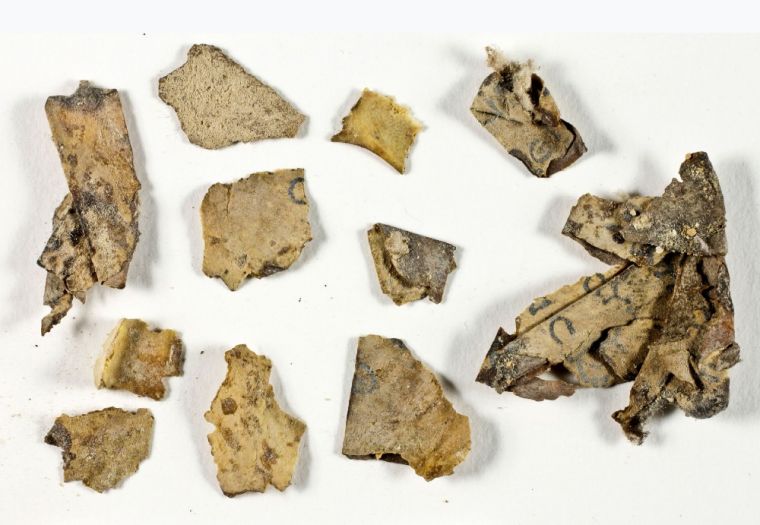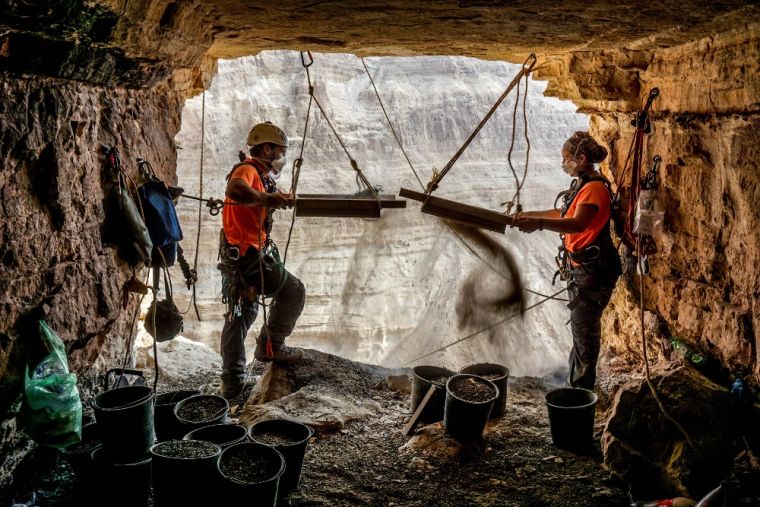Ancient Bible fragments dating back nearly 2,000 years discovered in Judean Desert

Fragments from a biblical scroll have been uncovered by archaeologists in the Judean Desert Nature Reserve.
It is the first time in around 60 years that archaeological excavations have yielded fragments from a biblical scroll.
The scroll dates back to the Bar Kokhba period in the 2nd Century AD and is written in Greek. The fragments contain portions of the Minor Prophets, including the books of Zechariah and Nahum.
The Israel Antiquities Authority (IAA) said the fragments had been written by two different scribes.
They were discovered alongside the 6,000-year-old skeleton of a child, likely female, wrapped in cloth and mummified, a cache of coins, and what is believed to be the oldest complete basket in the world, dating back 10,500 years.
The discovery was made by the IAA as part of a major national operation to prevent the looting of antiquities in the Judean Desert, which has been a problem since the discovery of the Dead Sea Scrolls 70 years ago.
"The aim of this national initiative is to rescue these rare and important heritage assets from the robbers' clutches," said IAA director Israel Hasson.
"The newly discovered scroll fragments are a wake-up call to the state. Resources must be allocated for the completion of this historically important operation.
"We must ensure that we recover all the data that has not yet been discovered in the caves, before the robbers do. Some things are beyond value.

"The desert team showed exceptional courage, dedication and devotion to purpose, rappelling down to caves located between heaven and earth, digging and sifting through them, enduring thick and suffocating dust, and returning with gifts of immeasurable worth for mankind."
The latest discovery yielded dozens of parchment fragments, some of which contained parts of Zechariah 8:16–17: "These are the things you are to do: Speak the truth to one another, render true and perfect justice in your gates. And do not contrive evil against one another, and do not love perjury, because all those are things that I hate—declares the Lord."
Other fragments contained Nahum 1:5–6, "The mountains quake because of Him, And the hills melt. The earth heaves before Him, The world and all that dwell therein. Who can stand before His wrath? Who can resist His fury? His anger pours out like fire, and rocks are shattered because of Him."
Unusually, although most of the text is in Greek, the name of God appears in ancient Hebrew script, known from the times of the First Temple in Jerusalem.
The IAA, which called the latest discovery "thrilling", said the fragments were discovered in a cave on the side of a sheer cliff that hid Jewish refugees almost 1,900 years ago.
Avi Cohen, CEO of the Ministry of Jerusalem and Heritage, said the find was "very exciting".
"Without the consistent and coordinated action of the various government offices, the Israel Antiquities Authority and the Civil Administration, these special assets would not be made accessible to the public, rather would remain in the possession of antiquities looters," he said.
"The ministry will continue to be part of the project, in order to complete the mapping of the caves that contain similar finds.
"The continued project includes the combination of extraordinary professionals and advanced technologies, and we are proud of this unique cooperation, which we applaud."











